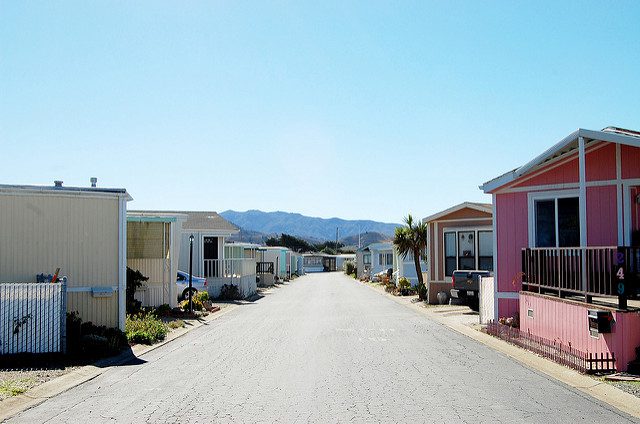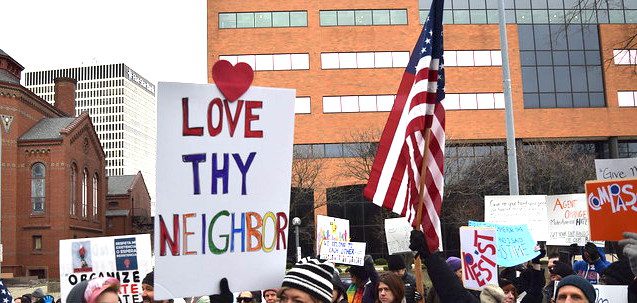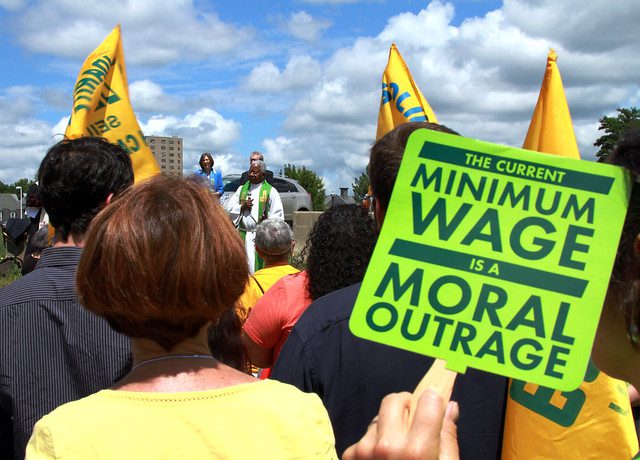
Photo by Todd Lappin via flickr, CC BY-NC 2.0
Welcome news: manufactured homes may appreciate as well as site-built homes. This news comes via the Federal Housing Finance Agency’s (FHFA) quarterly report on U.S. home prices, which for the first time includes data on manufactured housing. While there are limits to the data, we agree with the Urban Institute—a re-evaluation of our views on manufactured homes is needed. “The perception that [manufactured housing] is a deteriorating, not appreciating asset, makes it harder to obtain financing for manufactured homes.” This report is indeed a step in the right direction to gaining a fuller picture of this housing sector, and clearing up misinformation that has had real financial consequences for manufactured home owners.
Freddie Mac has just announced that it will begin purchasing mortgages made to community land trust (CLT) homes. The new product will be available starting November 5. Since access to mortgages has always been one of the limiting factors in CLT growth, this move is an exciting development for the field of permanently affordable housing.
Hasty Evictions Driving Seattle’s Homelessness Increase. Another increase in Seattle’s already high homelessness rate is being exacerbated by evictions that often are over rent that is no more than a month late, a recent study showed. “It’s clear from the data and surveys that the problem isn’t tenants not wanting to pay rent, it’s tenants having bad luck and not getting the time to catch up,” says Margaret Diddams, one of the report’s lead authors. “Hasty evictions can turn a moment of bad luck, like a health crisis or unexpected cuts in pay or hours at work, into months of homelessness.” Tenants of the Seattle Housing Authority have sometimes been evicted for under $50 owed.
For military veterans, job searches can be hard, as it’s often difficult to “translate” what are often specialized skills gained during service into the private sector. Google has recently announced that it had introduced a new search feature for this segment of the job-seeking population. Upon typing “jobs for veterans” and ones military occupational specialty code, Google will return a list of jobs that are most suited to those skills. The media giant announced this new feature along with a package of other supports for veterans working in the tech field.
An unfortunate, all-time high: The number of older adult households that are cost-burned, defined as spending more than 30 percent of income on housing, has dramatically increased. In 2016, 9.7 million older adult households were cost-burdened, compared to 6.5 million in 2001. Unsurprisingly, households that are still paying off mortgages were hurting more. The news is depressing especially when you consider the fact that the number of older households with very low incomes is rapidly growing and that those who get rental assistance tend to be elderly (and even that assistance is in jeopardy). We need to pay attention to what’s happening in our older adult community.
“Gentrification really affects people who are renting.” Out of concern for the rapid pace of real estate turnover and displacement in communities in South Florida, a group of young private real estate investors in Miami have taken matters of gentrification and displacement in historically Black neighborhoods into their own hands. The Miami Millennial Investment Group has begun purchasing homes in neighborhoods like Little Haiti and Liberty City, renovating them, and reselling them to residents at affordable prices.
A new housing affordability measure from the Federal Housing Finance Agency takes a whole lot of additional factors into account, and finds that lower-income people have more trouble affording houses. We know, right, we couldn’t believe it either? Also: the affordability gap by income class is getting worse.
Despite fears that ICE will detain them, undocumented day laborers have played a “central role in fueling Houston’s recent growth” and recovery efforts after Hurricane Harvey, reports CityLab in this eye-opening piece. And yet, they have also suffered more economic loss—damage to homes, and loss of work/wages—and they have received less aid. This story is definitely an eye-opener.
Shelterforce has been at the forefront of coverage of the interconnectedness of health and communities and the quickly-growing relationship between community development organizations and health care providers (and funders). It’s why we’re encouraged to hear news about a regional health foundation that has given a grant to a nonprofit lending organization. In recognizing that good health is contingent on financial security, the foundation’s grant will increase access to microloans and small-business financing for entrepreneurs and low-middle income business owners in rural Colorado.
Have you been hearing about “middle neighborhoods” as much as we have? This is a visually stunning presentation to help you understand middle neighborhoods—areas that are on the edge of growth and decline—and why it matters that they’re disappearing.
Indigenous activists protested the California Governor’s Climate Summit during the week of Sept. 10, calling for more front-line activists to be represented and less focus on technocratic solutions that support big business. People traveled from all over the world to participate in the weeklong series of protests and discussions about what a just response to the climate crisis would look like.





Comments